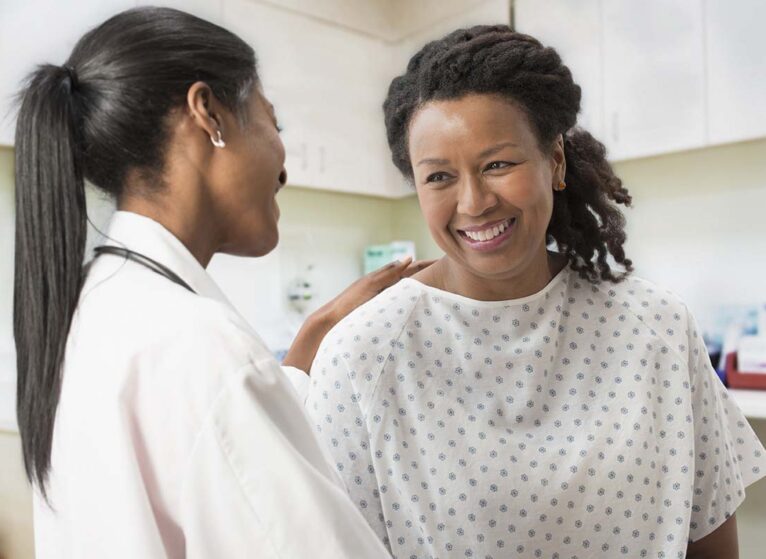During Cervical Cancer Awareness Month, we're reminded to do what we can to prevent and eliminate this cancer. About 11,500 Americans get diagnosed with it each year. Luckily, we have 2 powerful tools: cervical cancer screenings and the HPV vaccine. But what about an at-home HPV test? Is it possible we could skip Pap smears altogether?
In this Q&A, Paola Gehrig, MD, and Carrie Sapato, MD, answer this and other common questions about cervical cancer screening.
We've seen companies advertising at-home HPV tests online. Are these real?
Sapato: You'll notice most of these have a disclaimer that says they're "not intended to diagnose, treat, or cure disease." The tests popping up on Google are not FDA-approved to diagnose HPV.
How close are we to an FDA-approved at-home HPV test?
Sapato: The only FDA-approved tests for self collection are to be done in a healthcare setting. There are trials of home collection but no FDA-approved options at this time. Of note, the at-home HPV test collection trials showed great promise for this option.
At UVA Health, we offer patients the option of self collection (at-home HPV test). However, these tests only test for HPV. So if the HPV is positive, they would still need an exam with a speculum to collect the Pap smear/cytology (looking at the cells under the microscope).
How often should you get a Pap smear?
The HPV Vaccine Can Prevent Cervical Cancer
Get the details on who should get the vaccine.
Gehrig: We follow these guidelines:
Younger than 21: no screening needed
21-29: Pap test alone every 3 years
25-29: HPV testing alone can be considered, but Pap preferred
30-65: One of these 3 options:
- Pap and HPV test every 5 years
- Pap alone every 3 years
- HPV test alone every 5 years
65 and older: No cervical cancer screening needed if no history of cervical changes plus one of these in the last 10 years:
- 3 negative Paps in a row
- 2 negative HPV tests in a row
- 2 negative co-tests in a row
What should you do if a Pap smear hurts?
Gehrig: The Pap smear may cause a little cramping but should not hurt. Pelvic exams can be uncomfortable due to the speculum. Talk to your provider about your concerns. They can include you in making sure you are as comfortable as possible.
Should Pap smears include anal exams to check for anal cancer?
Women without risk factors do not need routine anal exams or anal pap smears. Some who may benefit from this screening include:
- Women who are HIV-positive
- Women with a history of cervical dysplasia
- Women who have anal sex or are transgender


